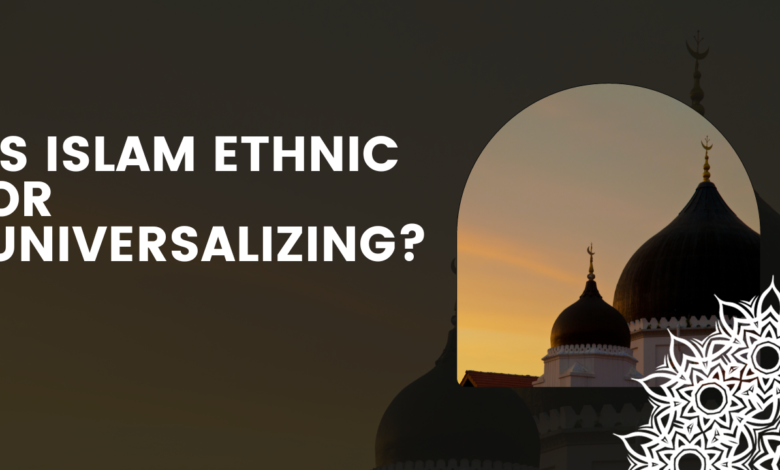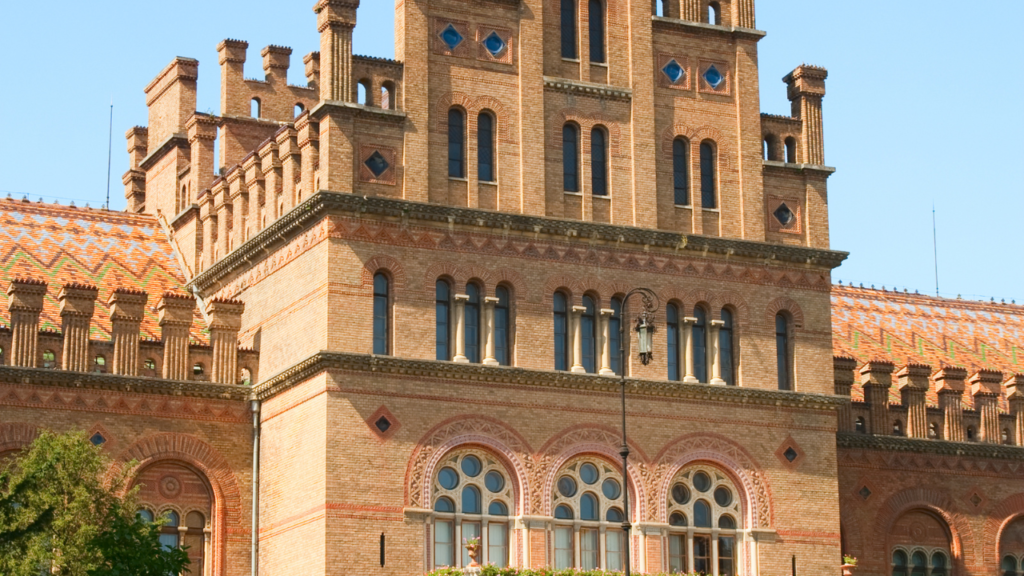Is Islam Ethnic or Universalizing?
Exploring Islam's Identity: Ethnic or Universalizing?

Is Islam Ethnic or Universalizing?
No, Islam is not an ethnic religion. It is considered a universalizing religion with a global reach.

Introduction
The question of whether Islam is an ethnic or universalizing religion is a topic of significant debate and discussion. Understanding the nature of Islam is essential not only for academic purposes but also for fostering intercultural understanding and promoting religious tolerance. To unravel this complex issue, we must delve into the core beliefs, history, and practices of Islam to determine whether it leans more towards being an ethnic or universalizing religion.
Defining Terms
Before we proceed, let’s clarify the terms “ethnic religion” and “universalizing religion.” Ethnic religions are those that are closely tied to a particular ethnic or cultural group. They often have distinct rituals, traditions, and beliefs that are passed down through generations within a specific community. Universalizing religions, on the other hand, seek to spread their beliefs to people of all ethnicities and backgrounds. They often have a missionary or proselytizing aspect and aim to convert individuals from various cultural backgrounds.
Also check.
- Who is the Wessiah in Islam?
- What is Wudu in Islam?
- What is Jihad in Islam?
- Why did Islam Spread So Quickly?
- What are the Holy Books of Islam?
Islam’s Core Tenets
At its core, Islam is a universalizing religion. It is founded on the belief in the oneness of God (Allah) and the prophethood of Muhammad. These foundational principles are not tied to any specific ethnicity or culture. They are intended for all of humanity, as outlined in the Quran, which is considered the holy book of Islam. The Quran contains messages and guidance for all people, regardless of their ethnic or cultural background.
Furthermore, one of the Five Pillars of Islam is the Shahada, which is the declaration of faith. Muslims around the world recite the Shahada, affirming their belief in the oneness of God and the prophethood of Muhammad. This act of faith is not limited to a particular ethnic group but is embraced by Muslims of all backgrounds.
Diversity within Islam
One of the reasons why some may perceive Islam as an ethnic religion is the diversity of cultural practices and traditions among Muslim communities around the world. For example, there are distinct customs and traditions within Indonesian Islam, Saudi Arabian Islam, and Bosnian Islam, among others. These differences can sometimes be mistaken for ethnic distinctions, but they are primarily cultural variations rather than indications of an ethnic religion.
It is important to note that the cultural diversity within Islam does not alter the universal nature of its core beliefs. Islam’s universality is evident in its outreach to people from various ethnic backgrounds and its aspiration to unite all believers under the banner of monotheism.
Islamic History and Expansion
The historical trajectory of Islam also reflects its universalizing nature. Islam originated in the Arabian Peninsula in the 7th century but quickly spread beyond the Arab borders. Islamic empires expanded across regions as diverse as North Africa, Spain, India, and Southeast Asia. The spread of Islam was not confined to any particular ethnic group but rather transcended ethnic boundaries, encompassing a wide array of cultures and languages.
Conclusion
In conclusion, while there may be cultural and regional variations within Islam, the religion itself is fundamentally universalizing in nature. Its core beliefs, teachings, and the mission of spreading the message of monotheism to all of humanity affirm its status as a universal religion. While cultural practices may vary, they do not define the essence of Islam as an ethnic religion. Understanding Islam’s universal nature is crucial for promoting religious tolerance and fostering harmonious coexistence in our diverse world.

FAQs
Is Islam an ethnic religion?
No, Islam is not an ethnic religion. It is considered a universalizing religion with a global reach.
What defines an ethnic religion?
Ethnic religions are closely tied to a particular ethnic or cultural group, with distinct rituals and beliefs specific to that group.
What makes Islam a universalizing religion?
Islam’s core beliefs, including the belief in one God (Allah) and the prophethood of Muhammad, are intended for all of humanity, transcending ethnic boundaries.
Are there cultural variations within Islam?
Yes, there are cultural differences and variations in practices among Muslim communities worldwide, but these are primarily cultural and not indicative of Islam being an ethnic religion.
How does the spread of Islam throughout history reflect its universal nature?
Islam’s historical expansion beyond the Arabian Peninsula into diverse regions like North Africa, Spain, India, and Southeast Asia underscores its universalizing mission.
Does the diversity of cultural practices in Islam affect its universal character?
No, the diversity of cultural practices within Islam does not alter its universal nature. These variations are cultural rather than ethnic distinctions.
What role does the Quran play in Islam’s universality?
The Quran, considered the holy book of Islam, contains messages and guidance for all people, emphasizing Islam’s universal appeal.
Are there any practices or beliefs in Islam exclusive to a particular ethnic group?
While there may be regional customs and traditions within Islam, the core beliefs and tenets are meant for all Muslims, regardless of their ethnic background.




